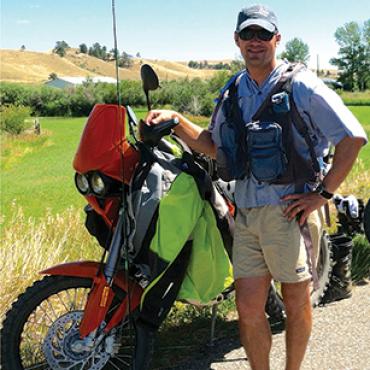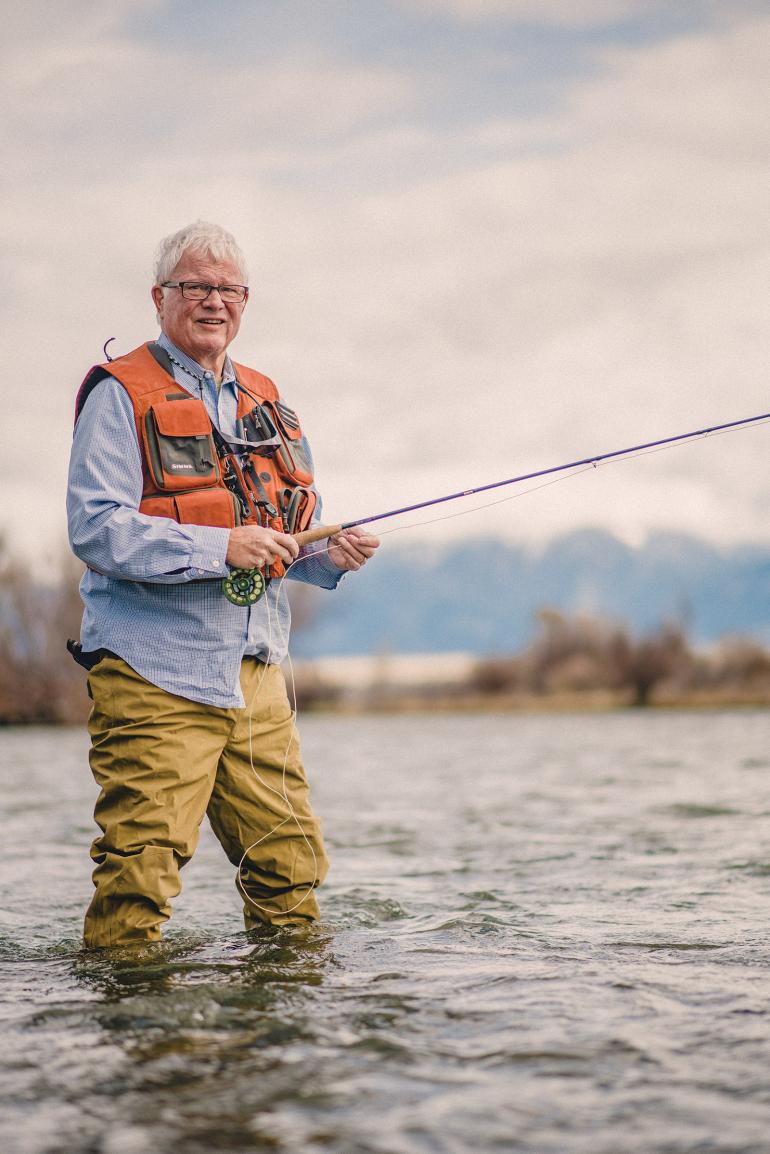Access Icon
How Jim Goetz has left a lasting impact on Montana trout streams.
If you’ve ever parked your car beside a public bridge and descended to the river, to spend a blissful day fishing or just strolling the streambed below the high-water mark, then you need to know this name: Jim Goetz. Goetz, a native Montanan, grew up fishing and floating the Treasure State’s many miles of cherished rivers and streams, and has devoted a sizable part of his legal career to making sure that others will be able to do the same.
For decades, his Bozeman law firm—Goetz, Geddes & Gardner—has worked to preserve and expand access to both public waters and public lands. Most notably, Goetz was the leading attorney in helping to establish Montana’s celebrated Stream Access Law in 1985. Devlan Geddes, of Jim’s firm, then defended the law in the face of the legal challenges brought about by a group of wealthy out-of-state landowners along the Ruby River near Twin Bridges who were determined to see the law reversed. Geddes prevailed in the face of this well-funded challenge, and now the benefits that the Montana Stream Access Law provides to anglers and other recreationalists are on solid ground. In fact, Goetz is quick to point out that all waters which have a public means of access are open to anglers and other recreationists—not just those that are “navigable.” That means lakes and reservoirs, too. “We’re very lucky as Montanans to have access to the water and land that we do, and this is thanks to the farsighted decisions of the Montana Supreme Court,” Goetz says. “We’re blessed here compared to other western states like Colorado and Wyoming.” He explains that the basis for the Stream Access Law is the Montana Public Trust Doctrine, a cornerstone of the state’s constitution, which declares that all waters are held in public trust for the benefit of the state and its people.
Even with his successes, however, Goetz reminds us that our rights to public lands and waters are never without threats. “It’s good to be vigilant,” he says, imploring us all to think and act broadly when it concerns public access to Montana’s rivers and streams. A conversation with Goetz makes it clear that, politically speaking, it all matters: from your county commissioner to who’s on the United States Supreme Court. Goetz encourages all stakeholders to get involved, and he referenced the Montana-based Public Land & Water Access Association (PLWA) as an effective place to start (plwa.org).
The threat to access, Goetz says, comes largely from wealthy newcomers to the state who have no respect for Montana’s longstanding tradition of public access to public lands.
According to Goetz, landowners often cite people’s lack of stewardship toward their own public lands as a reason for denying access to private property. Goetz touches on the fact that, “There’s always some joker out there who abuses the public right; we have to be careful to monitor our own use and behave appropriately.” A good point, albeit clearly not obvious to everyone.
Disrespect of the land is an understandable complaint, but it is also a problem all users solve together by means of self-policing, clean-up days, and education. Overall, Goetz says that the use of water and land by the general public is widely recognized, and has always been so. The threat to access, he says, comes largely from wealthy newcomers to the state who have no respect for Montana’s longstanding tradition of public access to public lands.
Finally, Goetz advises civility on the part of an angler in the face of an angry and belligerent landowner. “The situation is always explosive, and the 2nd Amendment is big in Montana,” he says. In other words, don’t get yourself shot in an access argument. Instead, as Atticus Finch once advised in Harper Lee’s famous novel, To Kill a Mockingbird, “Try fighting with your head for a change”—an admonition that Goetz himself followed in 1985 and still heeds to this day.












